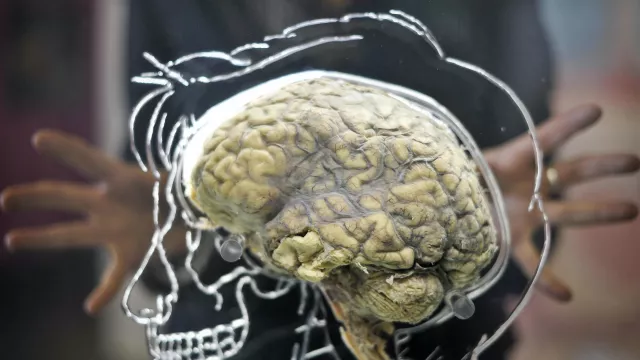Humans are hard-wired to prefer experiences that end well, and the influence of previous experience declines the longer ago it happened, researchers suggest.
They add that people cannot always trust that choices made based on previous experience will serve their best interests in the future.
The research found that two different parts of the brain are activated, and compete with each other, when decisions based on past experience are made.
They can cause people to overvalue experiences that end well despite starting badly, and undervalue experiences that end badly despite starting well – even if both are equally valuable overall.
If we can’t control our in-built attraction to happy endings, then we can’t trust our choices to serve our best interests
Dr Martin Vestergaard, a researcher in the University of Cambridge’s department of physiology, development and neuroscience, who led the study, said: “When you’re deciding where to go for dinner, for example, you think about where you’ve had a good meal in the past.
“But your memory of whether that meal was good isn’t always reliable – our brain values the final few moments of the experience more highly than the rest of it.
“If we can’t control our in-built attraction to happy endings, then we can’t trust our choices to serve our best interests.”
According to the study published in The Journal Of Neuroscience, the part of the brain called the amygdala works out the objective value of an experience – the overall tastiness of a three-course meal, for example.
Meanwhile a brain region called the anterior insula was shown to mark down our valuation of an experience if it gets gradually worse over time.
The further back in time an experience was, even if still quite recent, the less weight it carried in making the next decision, researchers found.
They call it the “happy ending effect”, people tend to make decisions based on previous experiences that ended well, irrespective of how good the experiences were overall.
In the study, 27 healthy male volunteers were asked to choose which of two pots of coins, viewed on-screen one at a time, had the greatest total value.
They watched as coins of varying sizes, representing their value, fell from the pots in quick succession, while a brain scanner revealed what was happening in their brain using functional magnetic resonance imaging (fMRI).
The task was repeated several times with different sequences of coins.
Researchers found the volunteers systematically chose the wrong pot when the coins decreased in size towards the end of the sequence.
They suggest this reveals the brain was imposing a penalty on the whole sequence, irrespective of its total value, when the ending was not good.
The effect varied from person to person, but only a few were able to ignore it entirely and make a completely rational decision, according to the study.







